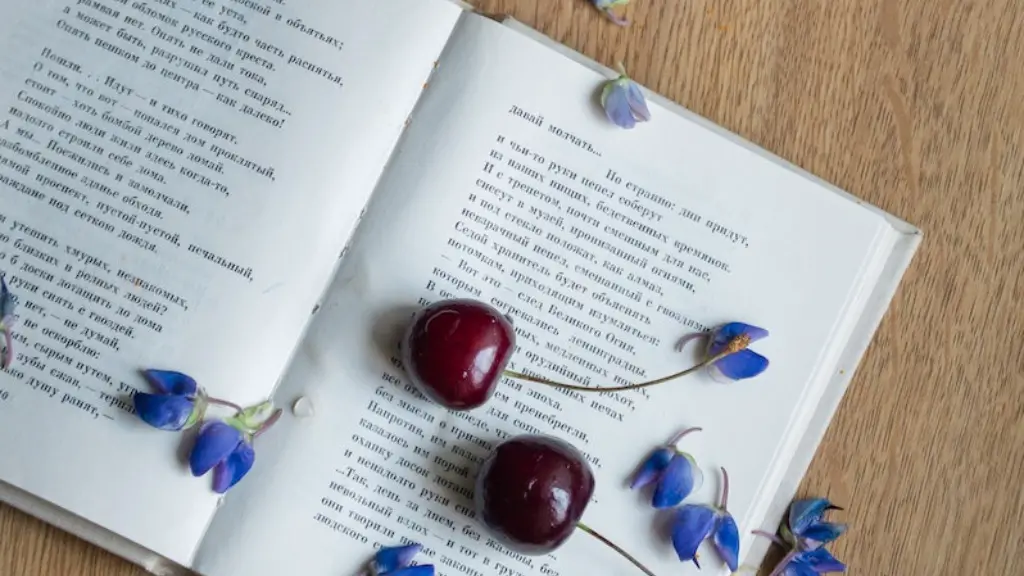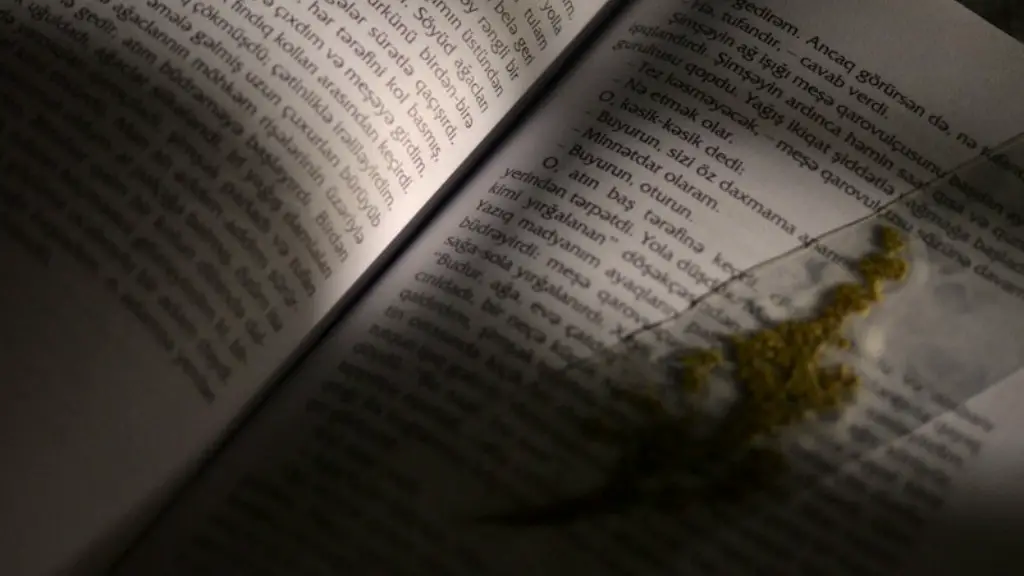An Introduction to Poetry
Poetry is an art form that has been used throughout history to express emotions, thoughts, and experiences. It can be seen as a bridge between the writer and the reader, with its intricate symbolism, metaphors, and imagery. Poetry is often divided into various subgenres, such as lyrical, narrative, and epic, and styles can vary greatly from one poet to another. Choosing the right poem to read can be complicated and intimidating, especially for the uninitiated, so the following guide will provide an introduction to poetry and tips on finding the perfect poem for you.
Understanding the Basics of Poetry
In order to find a poem that resonates with you, it is important to understand the basic elements of poetry. Poems are typically composed of meter, rhyme, and/or other sonic devices. Meter is the rhythm of the poem, while rhyme is the pattern of end sounds that are repeated throughout a poem. Meter and rhyme can be used to give the poem structure and to create a feeling of harmony. Poems can also make use of other devices, such as alliteration and assonance, to create an effect or emphasize a mood.
Exploring Different Genres of Poetry
With the wide range of styles and genres of poetry, it can be difficult to know which type of poem to look for. Popular genres include lyric poetry, which is meant to communicate feelings, moods, and experiences; narrative poetry, which tells a story; and epic poetry, which typically deals with grand themes and heroic figures. There are also other more modern genres, such as free verse, spoken word, and rap, and various hybrids and derivations of the classics that highlight specific historical, cultural, and contemporary issues. It is important to know what genres and styles of poetry you are interested in before beginning your search.
Discovering a Variety of Poets
Once you have decided on the type of poetry you would like to explore, you can start to search for poets whose work you may enjoy. Fortunately, there are a variety of ways to find poets and their work. You can use online resources to search based on genre, style, era, and language. Libraries, bookstores, and museums are also great places to look for books of poetry and biographical information on the poets themselves. You can also listen to readings of poems or watch videos of them being recited. This can help you get a better sense of the poet’s personality and the context of the poem.
Making Your Choices
Now that you have found a few poets who have caught your attention, it is time to narrow down your selection. Begin by reading a few of their poems, noting the way their words are constructed and the ideas expressed in their work. Listen to their recordings if possible, as this can add an extra layer of understanding to the poem. Once you have explored a few of their pieces, select one that you particularly enjoy. Then, look for more poems by that author that explore the same themes or evoke similar emotions.
Embracing Your Finding
Finally, don’t be afraid to embrace the poem or poet that you have found! You may not feel a connection right away, but as you keep reading and exploring you will eventually find a poem that resonates with you. Keep an open mind and allow yourself the freedom to connect with the poetry and not worry too much about whether it is considered “good” or “appropriate”. When you find a poem that speaks to you, let that be enough.
Exploring Different Types of Poetry
As with any art form, there is no single “right” type of poetry. Different types of poetry have been used over the ages to communicate different ideas and feelings. Think about the type of poem that you would like to find. Are you looking for something more serious, like a sonnet, or something more whimsical, like a limerick? Do you want something short and punchy, like a haiku, or something more substantial, like an epic? It may take some time, but if you look around and explore the different types of poetry, you will eventually find the type that appeals to you.
Finding Poetry You Enjoy
Once you know what type of poem you want to read, the next step is to find the poets that write in that style. You can browse online poetry databases, such as Poetry Foundation and Academy of American Poets, or search through anthologies and small collections of poetry. This can be a great way to find a number of different poems that are written in the same style and to get a feel for the overall message of each poet’s work. You can also look for readings and events in your local area, which can be great sources for discovering new poets.
Knowing Your Desires
Not all poetry will resonate with you. It is important to be honest with yourself about what you are looking for in a poem and what type of poem may be most satisfying. Do you want a poem that expresses an opinion or carries a deep message? Are you looking for a poem with a strong narrative or one that allows for an open-ended interpretation? Being clear with your preferences will make it easier for you to filter out poems that don’t work for you and focus on the ones that do.
Experimenting with Different Poets
Finally, don’t be afraid to experiment with different poets. There are so many great writers out there to explore, and by expanding your boundaries you may just find the perfect poem for you. Don’t feel confined to any one era, genre, or style of poetry. By exploring different poets and poem types, you may be surprised at the hidden gems you discover!
Using Various Resources
When it comes to finding great poetry, the most important thing is to keep looking. Use the internet, bookstores, and libraries to your advantage. Find and attend poetry readings and events in your area. Ask your friends and family for recommendations. And most importantly, keep an open mind and don’t be afraid to try something new! With a bit of patience and exploration, you are sure to find some amazing poetry that speaks to you.
Studying Poems
Once you’ve found a few poets whose work you enjoy, take some time to analyze and study their poems. Read their poems multiple times, paying attention to language, imagery, and metaphor. Ask yourself questions about the poems and the poet’s intent. To help deepen your understanding, you can look up scholarly criticism and analysis of their work. This will not only help you get more out of the poem, but can also help you find more poets and poems you may like.
Networking
The world of poetry can be intimidating, especially for those new to it. If you are feeling a little lost, consider networking with other poets or joining a poetry workshop or reading group. These can be great sources of support and mentorship, as well as places where you can find new poems and poets to enjoy. Additionally, many authors post their works on social media, so be sure to look around and see what you can find.
Sharing Your Findings
Once you’ve found a poem or poet that speaks to you, share it with others! Discuss what you like about a particular poem or poet with your friends or family. You can also post on social media and encourage discussion. Poetry is about connecting with others and sharing your feelings, so don’t be afraid to tell the world about your favorite poet and poem!



